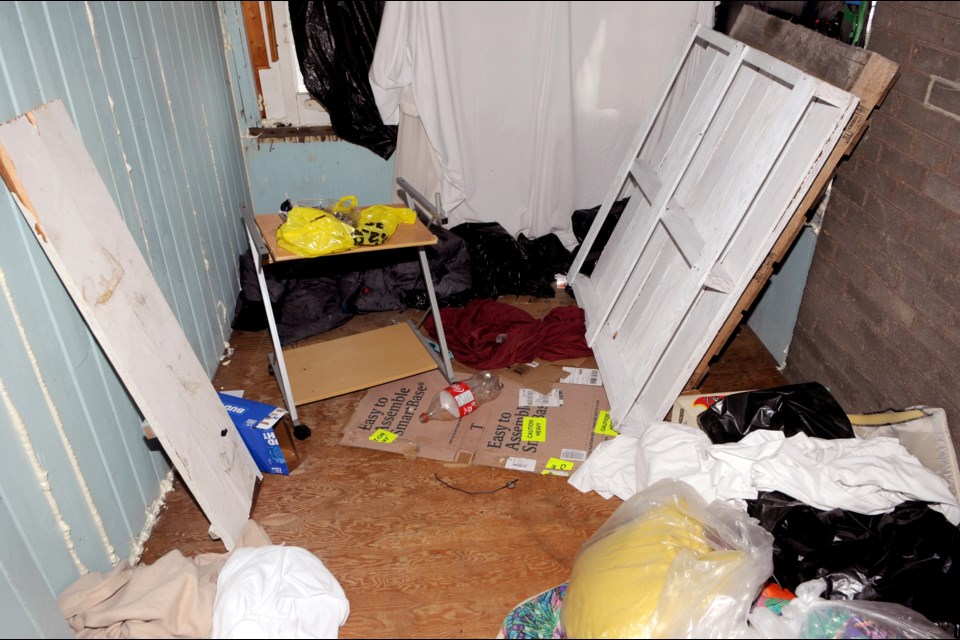A couple accused of running a human trafficking operation in Simcoe County in 2019 have been given a judge’s permission to access some of their company’s money - that had been frozen by the court - to fund their criminal defence just ahead of their preliminary hearing.
“I’m somewhat pleased with the decision,” said Peter Thorning, who is representing Patricia Zuniga Rojas Senior. “But... it doesn’t go far enough in ensuring that my client is able to make full answer and defence.
“This case is a gigantic case. There’s the potential for 40 witnesses at a preliminary inquiry…. The preliminary inquiry is vital to her interests.”
Zuniga, 56, her husband, Kevin Kielty, 56, and her two grown daughters face charges of trafficking in persons, receiving a benefit from human trafficking, participation in the activities of a criminal organization and possession of property obtained by crime.
Their 20-day preliminary hearing is scheduled to start July 19.
They are accused in the high-profile case of exploiting Mexican immigrants, enticing them to come to Barrie on the promise of securing work and learning English.
Instead the workers claim they were made to clean and do janitorial work for very little pay and lodged in substandard, overcrowded accommodation. The workers told BarrieToday at the time that their objections were met with threats of deportation. (Click here to read that story)
In tearful testimony last month, Zuniga told the court she is dealing with a frightening medical issue that hasn’t been diagnosed because she doesn’t have legal status in Canada, has no insurance and can’t access medical care.
She said she doesn’t have money to pay for medical attention and can’t return to Mexico because officials here have pulled her passport while she deals with the criminal charges.
Meanwhile, in October 2019, the court restrained $133,000 in an account belonging to her husband’s company, RTL Services, which was registered as 9542701 Canada Inc., on the Crown’s argument that the money constituted proceeds of crime. The Crown suggested in the event of a conviction the workers may have a claim to the funds.
In his written decision released July 5, Justice Justice Cary Boswell said he found her pleas for access to the money for her medical concerns “disingenuous” based on his examination of the couple’s current financial situation.
“I do not believe for a minute that she is not addressing valid health concerns as a matter of economics,” the judge wrote.
But he determined their needs to access money to fund their defence does exist. He cited the ability to retain counsel as a fundamental tenet of the criminal justice system.
He estimated their legal costs for the preliminary hearing to be about $70,000 each, based on Legal Aid rates. Neither were able to access Legal Aid.
But even at those rates, he added, there is not enough money in the frozen account to cover the couple’s legal costs related to the preliminary hearing.
He determined that $67,000 of the frozen money will remain restrained for outstanding HST costs owed to the Canada Revenue Agency.
The couple will split, equally, the remaining $66,000 to be used to fund their defence.
“The applicants clearly need access to the restrained funds in order to pay their lawyers. RTL’s business went into a steep decline after the charges were laid against the applicants,” Boswell wrote in his 19-page decision, adding he’s not satisfied that they’ve been entirely candid about the exact state of their financial affairs.
“The costs of defending the index charges will be immense. Income from the new business may be sufficient to cover some portion of the costs, but it will be, in my view, a relatively modest percentage.
“I am satisfied that this is a bona fide application and that their need to access the restrained funds is acute.”
Thorning said the case is complex and his client has no way of earning a living.
“There’s other mechanisms that we may seek to use to ensure that defence counsel are adequately paid,” he said.
During the June hearing, Thorning told the court the spectre of someone in our country without health coverage in declining health participating in the legal system “is unpalatable,” adding that everyone has the right to have a fair trial and right to counsel.
In opposing their application, Crown lawyer Bhavna Bhangu suggested the court was not getting a true picture of their economic resources.
If there is a conviction, she said, there would be a very real possibility that they would have to pay restitution to the workers for unpaid income.
Court heard Zuniga, a Mexican citizen, and Kielty, a Canadian citizen, married in 2004 and lived in Mexico for 10 years before coming to Canada with her daughters from another marriage to start the business.
They moved to Barrie in 2015 and now live in a rented condominium in Etobicoke by Lake Ontario.



